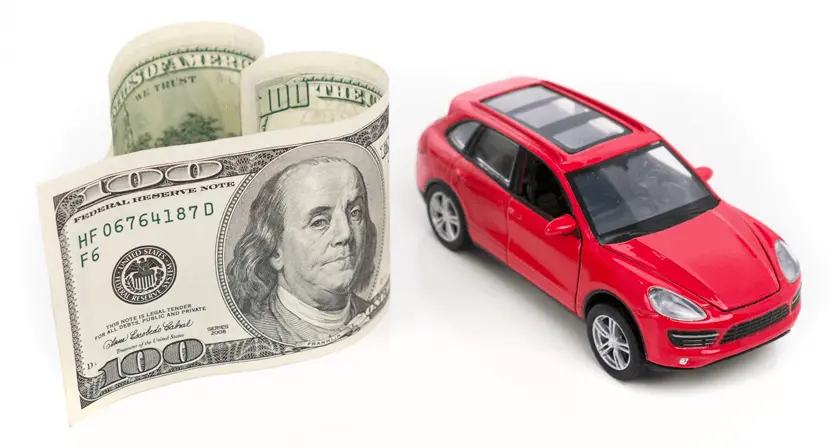The value of your car isn't the only determining factor. Learn more about the many other variables that come into play when shopping for full coverage auto insurance and tips for controlling your costs.
Does My Auto Insurance Cover Friends Driving My Car?
“A friend in need is a friend indeed”. While helping a friend out by letting them borrow your car is something we all would like to do, knowing there’s a chance they could get into an accident might raise questions you’d like answered before you hand over the keys. The two that might come to mind are:
Who’s insurance would cover the damages if my friend is involved in an accident?
Can my insurance rates be effected?
You also might be worried, and rightly so, that one out of eight drivers does not even carry insurance.
Find Cheap Auto Insurance in Your Area
When the Accident is NOT Your Friend’s Fault
Fortunately for you and your friend, if the other driver is found at-fault for the accident, their auto insurance will pay to repair or replace your car (this includes towing it). Their insurance will pay for your friend’s medical expenses and since it was the other driver’s poor judgement that caused the accident, the other driver’s insurance rates are bound to go up, not yours or your friend’s.
That’s great news, but what if the at-fault driver is one of the one out seven drivers who doesn’t have insurance? What happens then?
Damage to Your Car: When your car is damaged by an at-fault driver who is uninsured, your Collision insurance will pay to repair or replace your car. If you do not carry collision coverage, but you do carry Uninsured Motorist Property Damage (not available in all states), your UM property damage will pay to repair or replace your car.
If, however, your car insurance does not include collision or UM property damage coverage, and your friend is not at-fault in the accident, your only alternative is to sue the at-fault driver for damages. Your friend’s insurance will not pay to repair or replace your car since they weren’t at-fault and it’s not their car.
Your Friend’s Injuries: If the at-fault driver is uninsured or underinsured, your friend’s Medical Payments coverage will pay up to the limit of the policy. If your friend’s Medical Payments is not enough to cover their medical expenses, your uninsured motorist coverage or medical payments coverage might pay the excess, depending on the terms of the insurance policy and the state you live in. When all else fails, your friend can sue the at-fault driver.
When the Accident IS Your Friend’s Fault
Different rules apply if your friend is found at-fault in an accident while driving your car, and there is damage to your car and injuries to the other driver. Unfortunately, many people have the misconception that car insurance follows the driver when in fact it follows the car.
Damage to Your Car: If your friend is unfortunate enough to cause a car accident, the damage to your car is covered under your Collision coverage but is subject to your deductible. If your car must be towed, you will have to pay those expenses out-of-pocket unless you have roadside assistance (towing and labor) coverage. If you do not carry Collision coverage, you will have to pay out-of-pocket for repairs.
Damage to the Other Car: Any repair expenses or replacement cost for the other driver’s car is covered under your Property Damage Liability subject to the limits of your policy. You may have to pay out-of-pocket if your limit is not sufficient to cover the damages or replacement costs unless your friend’s auto insurance will pay the excess.
Expenses for Injuries to Your Friend: Your friend’s medical expenses will be covered under their Medical Payments coverage (or PIP in a no-fault state) if they elected to purchase it. If you are in a state that is not a no-fault state, or your friend does not carry insurance, your Medical Payments may pay depending on the terms and conditions of your insurance policy.
But there’s More! If your friend is using your car for work, they will be covered under the company’s workers compensation policy (if there is one in effect) or under the friend’s health insurance coverage.
Expenses for Injuries to the Other Driver: Since liability coverage follows the car, your Bodily Injury coverage will pay for injuries to the other driver(s). In most cases, if your liability limits are not sufficient to cover all the medical expenses, your friend’s car insurance will pay excess over your policy.
How Your Insurance is Affected: When you lend your car out, you are basically loaning your auto insurance at the same time. Thus, if your insurance company is forced to pay a claim due to an accident your friend caused, it’s likely you will see an insurance rates hike. Also, even though your own driving record is not affected by your friend’s accident, if you had a “good driver” discount, you will most likely loose it. However, since standards can vary from company to company, your best option is to call your agent or the company and ask how they would handle the situation to help you make an informed decision about loaning your car out.
Bottom Line
Before you let anyone who is not an insured driver on your car insurance policy drive your car, make sure that they have an in-force policy and that you have enough liability coverage (not the minimum) to transfer the risk you are about to take to the insurance companies. Also consider how safe a driver you consider your friend to be. Just like an insurance company, you are taking on your own risk, one of which is that your insurance rates could go up for at least 3 years if your friend causes an accident.


